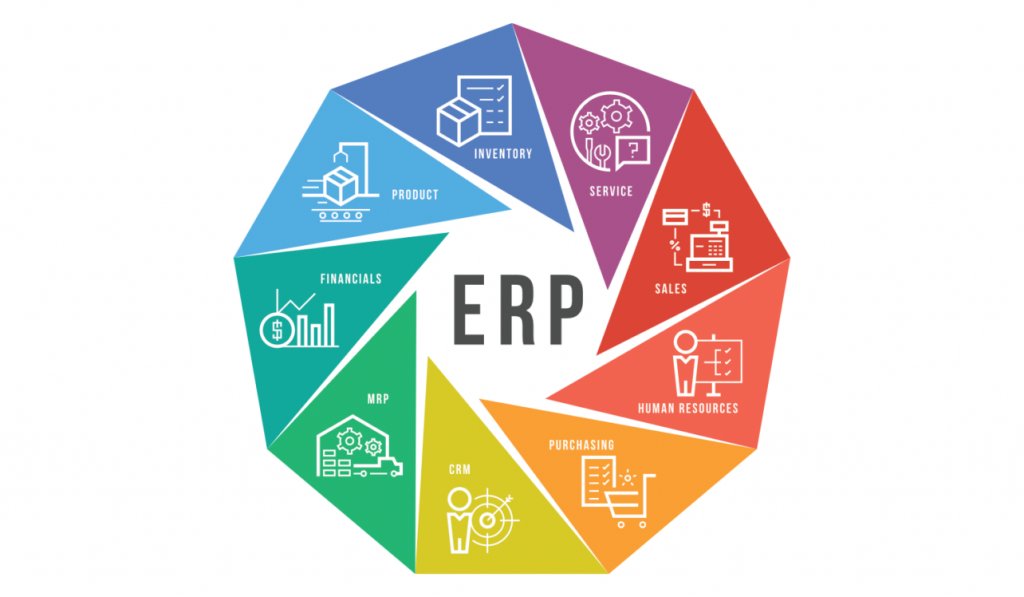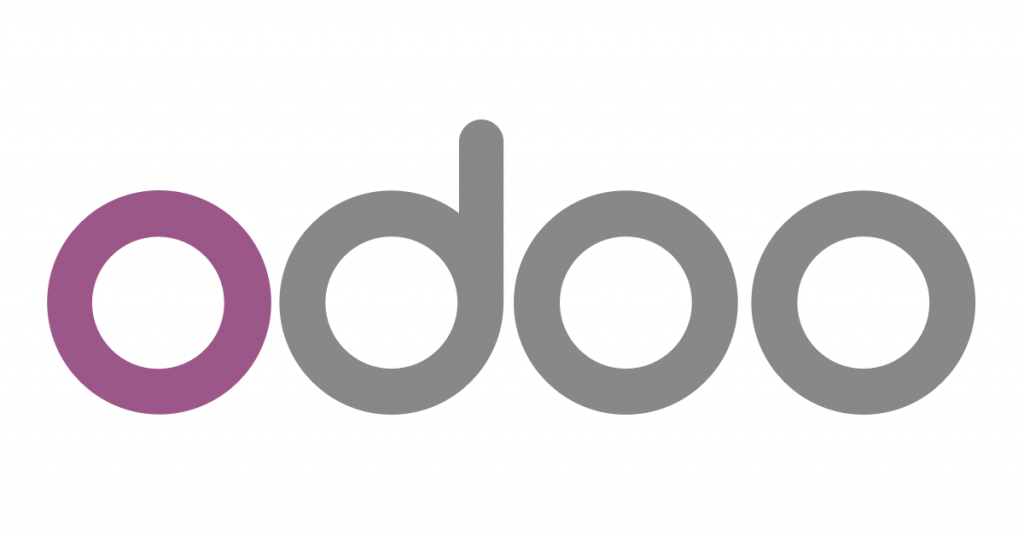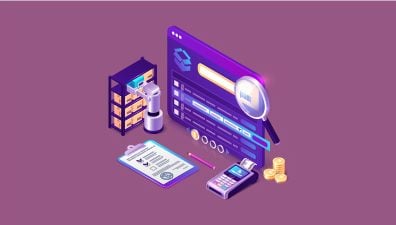Enterprise resource planning (ERP) has come to mean many things over the last several decades, emerging as one of the leading solutions for any company from SMEs (Small and Medium Enterprise) to MNCs (Multinational Corporation). Thanks to the multi-functional management of ERP, enterprises have various benefits of ERP systems such as higher productivity, effective governance, data security and quality, etc.
Like any system, however, ERP has some disadvantages that companies should know to consider whether to use ERP software or not. In this blog, we give you helpful information about the advantages and disadvantages of ERP and some suggestions about ERP systems. Let’s find it out!
Table of Contents
What is ERP?
According to Investopedia, Enterprise resource planning (ERP) is a process used by companies to manage and integrate the essential parts of their businesses. Many ERP software applications are important to companies because they help them implement resource planning by integrating all processes needed to run their companies with a single system. An ERP system can also incorporate planning, purchasing inventory, sales, marketing, finance, human resources, and more.
How does ERP system work in each type of business?
Any business can apply ERP to optimize their enterprise apparatus, improve management, control all sectors in the company. But how does it work in each type of business? I will give you some examples and explain how it works and its benefits in different industries to be more detailed. Of course, there are various types of companies that I cannot mention all. This section will list some significant ERP-using sectors, include:
- Manufacturing.
- Distribution (retail and wholesales).
- Construction.
- Services.
- Healthcare.
Health Care
The primary objective of any healthcare institution is to provide individuals with optimal health services. Managing patient information becomes very critical in this regard. The Health Insurance Portability and Accountability Act (HIPAA) clearly defines the importance of safeguarding the Protected Health Information (PHI) and the repercussions of not following the same.
You will see the benefits of ERP in this respect clearly. It not only helps to manage the patient information, which consists of the patient’s medical history along with the next visit scheduled but also helps to integrate the data with other processes such as billing, assigned doctor, etc.
The data flow between all the processes is streamlined with the assistance of ERP software. Therefore, all the information related to payment history, condition of the patient, etc., is easily accessible to the staff when a patient visits the healthcare institution. It assists in speeding up the patient’s treatment process.
Construction
It is no simple job to be a contractor or project manager. A variety of procedures must be undertaken concurrently after taking up a construction project to ensure its completion within the timeline and within the agreed budget.
In collaboration with the field office, the onsite team can work and exchange all the necessary data so that the management can determine the way forward. They must also keep track of the demand and availability of construction materials and machinery. Any miscommunication or inconsistency in data between the onsite and offsite teams can lead to severe losses.
ERP applications such as Sage 300 Construction & Real Estate, Odoo has the purpose of integrating all the construction process-related processes. By calculating labour and equipment costs, it helps to prepare your budget. By entering the required quantity and the current pricing, you can also control the costs of raw materials required.
The contractors can review their status at any point in the project and evaluate the bottlenecks that cause hindrance to the project. In real-time, they can keep track of the inventory and calculate the sum of the necessary materials.
Another benefit of implementing ERP is that all records are in digital format, which is easier to handle and store, such as building design, invoices, and payroll.
Another role of ERP software is the supervision of the onsite personnel and in-house employees. It helps you to measure their salaries by monitoring the onsite employees. It also helps to process the employee’s payroll.
Manufacturing
One of the sectors driving the US economy is the manufacturing sector. The automotive sector, like every other sector, is embracing the new technology with open arms.
One of the most benefits of ERP for manufacturing is ensuring timely delivery of goods. A manufacturing company, whether durable or non-durable, has to deal with many aspects. Every part of the manufacturing industry is interconnected, from monitoring the time of the employees to buying the raw materials, from keeping track of the inventory to managing finances.
For all your development processes, ERP software is an all-in-one solution. It monitors the employees’ working hours so that you can measure their productivity. It helps to lower the cost of production by improving the handling of raw materials. You know precisely the raw material to be used and the amount needed for a product to be made.
In addition, different procedures, such as invoice requests and inventory tracking, are automated with the aid of ERP software. It saves a huge amount of time for producers, which can be used to make more goods.
Wholesales
The entire wholesale business is focused on the principle of “demand and supply.” If supply does not match the demand for a product, the wholesale company will lose its credibility on the market. On the other hand, if demand is lower than supply, heavy financial losses can be incurred by the company.
Therefore, controlling the supply chain and ensuring that there are no bottlenecks in the delivery of a commodity is important for wholesalers. An ERP program allows doing just that and much more.
You can keep track of inventory from various warehouses with an ERP solution and restock it as per demand. All product data can be viewed on a single portal, such as the batch number, shelf life, and manufacturer information. You may also obtain information on the shipment, such as costs and addresses.
The ERP app also makes it easier to handle sales and purchase orders and keep track of finances. As well as submitting invoice queries, you can automate bill payments. It provides wholesalers with a centralized database for the review of their goods.
Retail
There are some benefits of ERP in handling sales and purchase orders and keep track of finances. As well as submitting invoice queries, you can automate bill payments. It provides wholesalers with a centralized database for the review of their goods.
You can achieve all these functions collectively with the aid of ERP apps. The output of each product can be evaluated quickly with the efficient flow of data. Customer details, such as their frequency of purchasing a product, can be displayed and their expectations set accordingly. In a given month, you can also display the amount of a product being purchased and recognize the trends of consumer purchasing.
With ERP software, the integration of the sales with the accounting feature becomes simpler. ERP automates and assists in the time management of the retail method. The inventory list is automatically updated as soon as a product is finished, which lets you restock.
Services Industry
A good ERP system assists the service sector in designing numerous project functionalities and user interfaces, resulting in better and higher-quality project implementation. The integrated project structure offers you an overview of the services and materials you’ll need, as well as the costs connected with them.
Not only that, ERP systems helps you gain more customer satisfaction since it establishes a platform for you to verify the status of your projects at any time and from any location. The ERP system allows you to quickly assess your business budget and track the development of your services project.
Furthermore, ERP software improves visibility across companies, lines of communication between diverse employees, departments, and suppliers via ERP user interface, resulting in improved communications across numerous projects in multiple locations. With this function, clients can have the right service in real-time.
Benefits of ERP: Advantages and Disadvantages
12 Outstanding advantages of ERP system
Optimise processes and coordination
The ERP system will help businesses structure and streamline the process and link all the parts together. You can adjust the system to fit with your company’s structure. Many processes are automated, resulting in fewer mistakes and lower costs. As a consequence, there is less friction between departments and more synergy. These tried-and-true procedures provide significant benefits to organizations of all sizes.
Besides, the ERP system allows employees access to the data they need. Employees don’t have to execute an exhausting process and wait for receiving data from other departments. The thing they need to do is entering the interdepartmental database that stores departments’ information. It leads to project updates and greater communication across all departments in your company.
Increase productivity
Besides accessing data quickly, employees can easily follow and track their daily tasks, project process, and leaders’ requirements. The ERP system significantly lowers and eliminates tedious manual procedures, allowing your employees to focus on important tasks and arrange assignments effectively. There are some benefits of ERP in helping managers adopt and implement industry pragmatic practices, ensuring that all actions are coordinated across the organization.
Moreover, the outstanding advantages of enterprise resource planning are less paperwork and more manual data input. As a consequence, there are fewer chances of human mistakes disrupting the production process. Storing and finding documents is effortless; just spending minutes, you can find any data you want.
Improve management
There are tons of benefits of ERP for business management. ERP solutions assist entrepreneurs in linking all parts of Enterprise, including sales, marketing, finance, inventory, human resources, etc., into a firm and logical structure. Your departments are linked to each other with reliable, up-to-date data by linking and integrating all areas of business operations and management.
Integration also helps with effectiveness. With an ERP, leaders can check project process and job completion; thus, they are able to assess work progress and employee performance. Moreover, you can automate several processes and duplicate data, cutting down on repetitive manual tasks and their potential for error. Thereby, leaders and business owners manage their business tightly and effectively.
Enhance data security and quality
One of the biggest benefits of an ERP system is data security. Instead of combining data from various systems that might lead to source conflicts, ERP systems offer the single input method. It can enhance the accuracy, coherence, and protection of your company’s data.
Cloud-based ERP systems have an extra layer of security. Because the cloud manages all of your company’s data, several suppliers hire security specialists to guarantee that their servers are secure. It is hard for hackers to handle test assaults on a public server as a result of this.
Better analytics
You can recognize the various benefits of ERP in analytics plainly. analytics and reporting of your organization can be enhanced with a centralized database. ERP software is an excellent tool for business intelligence that records all the input information. It’s so much easier to produce reports with the help of ERP tools. In a matter of minutes with an ERP, what needs to take several days of analysis could be achieved.
You get a customizable Dashboard with ERP systems. Only by signing in to the system executives will see all the files. You have access to all the information with a single click, from revenue reports to cost statements. This will help you gain a better perspective and allow you to make better choices. For these papers, you don’t need to depend on anyone. In addition, you can define the level of access to these records so that only an approved person can display company details.
Real-time Information
The customers of today expect you to be versatile and sensitive. They are used to real-time responses, which can be difficult to satisfy if you do not have access to the most up-to-date information whenever and wherever you need it.
And your company has to plan, accurately forecast, make informed decisions, and stay on top of changing business developments and rivals; ERP systems provide the analytics and information you need to do it all in real-time, and then some.
Better Accounting
In order to assess progress during a growth process, it is necessary to keep track of your finances. However, remarkably when your business is exponentially increasing, it is not an easy job. The complexity of transactions increases, and without a centralized structure, it becomes difficult to handle them.
Lower upfront costs and operation costs
Owing to the fact that the separation of computing resources from enterprise infrastructures, such as the enterprises do not need to pay for facilities, the computing environment just pays to access the environment over the internet if you choose cloud ERP.
Besides the first pros, the cloud service providers (CSP) are responsible for operating and providing the cloud services that will lead to isolating the operation processes from the Enterprise as well as the operating costs.
Rapid implementation
CSPs offer a wide range of ERP solutions; these solutions can satisfy most enterprises’ needs. Choosing between different solutions and products takes place according to the enterprise business needs. The implementation process accelerated due to this selection process.
Scalability
Flexibility is one of the benefits of enterprise resource planning. The enterprises can scale up or scale down the used resources according to their current needs. Cloud services are highly elastic; they give enough control to accommodate new priorities and data input types. You can add new functions to an ERP platform to fit the needs of your business without limitation because the ERP system can handle all these changes.
Focus on core competencies
ERP systems provide the company with a much-needed competitive advantage, an extra tool to outperform competitors. While some firms cannot afford ERP software, others invest in technology advancements and reap the benefits. Your business can catch up with the market, understand customers, accelerate product development, and adapt swiftly to change thanks to the combination of real-time data and greater agility.
4 Disadvantages of ERP system
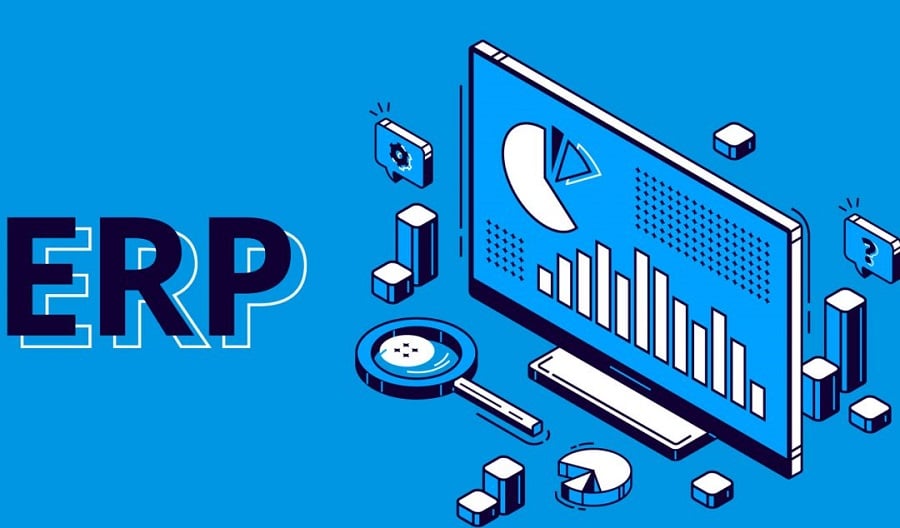
Training Inefficiency
In a production operation, skills, experience, human resources, and optimal resource utilization are essential. It isn’t easy to have your process run effectively and smoothly without these factors, which is why proper ERP training is imperative to make the system work properly. A significant number of businesses are trying to save money by not providing sufficient e-expenses. A significant number of companies try to save money by not giving adequate expenses for employee training in enterprise resource planning.
This will lead to inadequate awareness of the specific Enterprise Resource Planning vendor package being used. Inadequate training can lead to employees mishandling the technology, resulting in the loss of valuable information. Enterprise Resource Planning ( ERP) is an expensive system, and it can also be extremely expensive to set up the software alone. Acquisition depends on the scope of implementation, the departments’ complexity, and the vendors of ERP. It can cost up to a few million dollars for Packaged ERP software. Besides ERP software, the implementation of ERP software also requires computer hardware, updated network equipment, and security software.
Degree of Customization
The customization of ERP setup is limited, and it may engross the changing of the entirety of the ERP software foundation. The flexibility of the setup entirely relies on the brand of software being utilized. Some brands even provide a provision of extended customization and flexibility, which makes them more convenient to utilize when being compared to others.
High Implementation Times
It is imperative to consider implementation times and costs for software such as ERP when purchasing the software. Installation and training time can disturb the organization’s functionality and in that specific period could impose a huge risk of loss of potential business. Depending on the different modules that have to be installed, complete installation could take up to a year. This time is worth spending only if there are significant profit returns between time and money from the new setup.
Department interconnectivity
Interconnectivity between different departments within a production operation is both beneficial and disadvantageous. A chain is as strong as its weakest link, and inefficiency within one department will lead to inefficiency within the others with the implementation of ERP. It may affect the effectiveness of other departments if one department is impacted and becomes inefficient.
Should we use an ERP system after considering benefits of ERP?
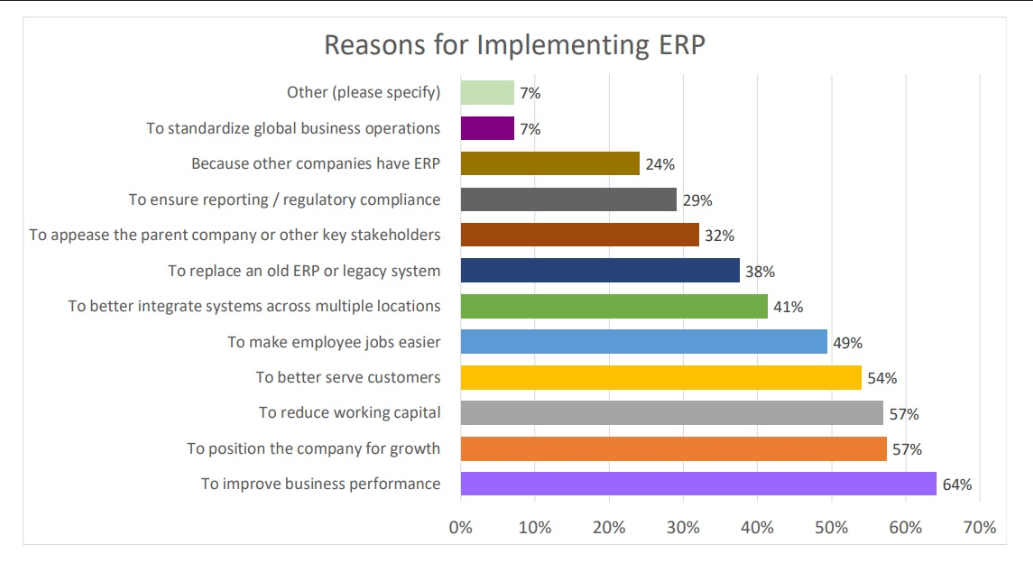
Investing in ERP software can help companies boost business efficiency and automate an organization’s certain processes. According to Panorama Consulting Group, 97% of businesses using ERP systems improve their business operation (ERP report, 2021). The figure is definitely remarkable and proves the efficiency of the ERP system.
According to Investopedia, there are 64% of businesses using ERP systems to improve business performance. Moreover, 57% of them apply ERP software to position the company for growth. This is the number of companies that use ERP for reducing working capital too. This can show that ERP is considered an optimal system for any enterprise to enhance productivity and growth.
ERP is the best solution for your company; however, choosing which technology your company should invest in is difficult since every day, there is a sea of new technologies emerging. It is critical for business owners to seek out each and every tool in the market to remain on top of the game.
And no exception is ERP systems. Of course, the benefits of ERP and limitations always influence the decision-making of sponsors. Because once you’re live on a new ERP system, the measuring and monitoring do not end. This is the time to get a post-go-live measurement of the benefits of ERP realization as well as return on investment.
Top 5 ERP software that benefits businesses the most
There are dozens of ERP systems available for both small and large organizations. However, finding ERP software that meets your requirements is more difficult. To help you deal with this problem, we suggest you top 5 ERP software that can suit any business type and size.
Odoo
An open-source ERP and CRM system that enables you to manage your whole business without the need for additional software, such as sales, accounting, marketing, data, even warehousing. If you need any functions for your system, you can access Odoo’s store and buy extensions. The installation procedure is straightforward. You only need to locate the extensions you want and incorporate them into your program in a matter of minutes, with no coding required. As a result, expanding your management software to suit your company’s size is simple.
NetSuite ERP
A cloud-based solution is designed to scale with your company. It automates a variety of activities, including fixed assets, order management, financial management, and more, in addition to warehousing management. From the managers to the staff, it offers a system for the entire organization. Besides, this software is quite adaptable. It’s simple to add a new department, field, form, or report to your account. Non-technical individuals can accomplish this.
Sage Intacct
This is a popular cloud business solution for streamlining your whole operation and increasing income while lowering costs. It combines fundamental ERP functionality with robust financial management capabilities. You can keep track of financial flows, payables and receivables, budgets, and orders, among other things.
SYSPRO
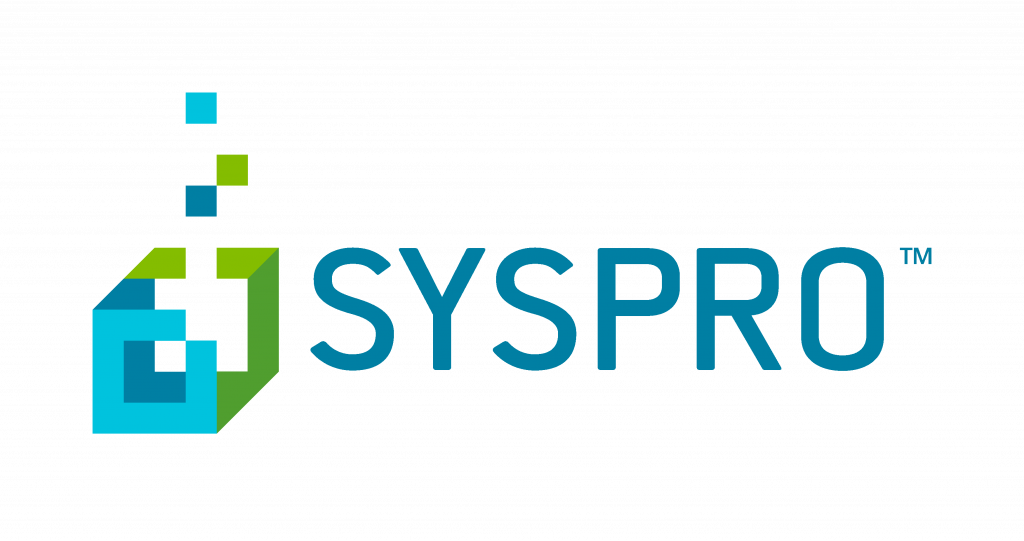
A fully complete ERP system created specifically for the industrial sector. Thanks to warehouse automation, employee management, device integration, and API services, you can integrate, manage, and synchronize different production and operational operations. With just one system, you can improve your whole workflow.
Oracle ERP Cloud
Oracle ERP Cloud A platform that seeks to give businesses of all sizes end-to-end business solutions, including procurement, financial management, project management, and more. This software is designed to link data throughout your whole business. The company’s products feature an extremely versatile module, which allows for a lot of customization. The company’s products are in the high-end pricing range.
Get started with the best ERP system
Odoo is comprehensive, fully integrated, easily used, cost-effective, and most importantly, it provides the most efficient functions for each specific industry. With 10.000+ apps in, Odoo covers all needs in a unique solution for a smooth and simple way to run businesses around the world.
As a Silver Partner of Odoo, Magenest delivers Odoo deployment for enterprises. We understand the platform inside out to minimize infrastructure investment expense, ensure the stability of cash flow, and accelerate the deployment process. After deployment, our personnel training program and customer service will give you guidance as well as maintenance to ensure the workflow is at its best. Our team makes sure that your workflows are optimized and accurate.
Talk to us and develop your business with the best ERP system!




